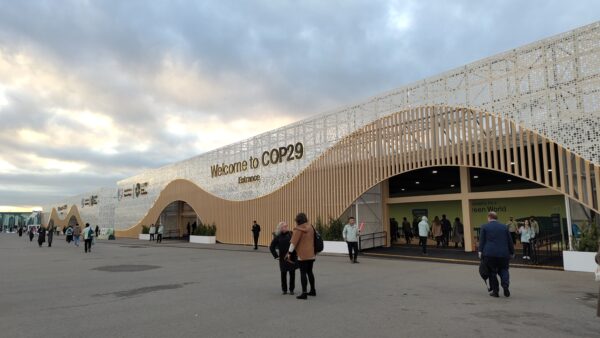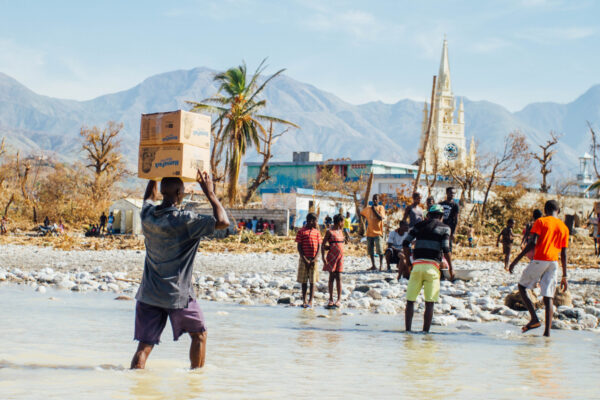South Korea’s gas problem
South Korea is investing heavily in gas-fired power generation. This raises concerns of overlooking cheaper forms of generations – like renewables – and increasing the country's reliance on overseas fossil fuel imports.
Share

South Korea is heavily investing in gas-fired power generation, raising concerns that this approach to energy policy will lead to increased costs, as it overlooks cheaper forms of generation – like renewables – and increases the country reliance on overseas fossil fuel imports. Our new analysis lays out an alternative path away from gas to renewables in line with the goal to limit warming to 1.5°C.
Limiting warming to 1.5°C requires immediate and urgent action to cut emissions to net zero. The IPCC’s latest Synthesis Report is very clear: we are in the critical decade for climate action.
In 1.5°C compatible pathways, every sector and region undergoes transformative change. The power sector, or electricity generation, decarbonises first, as it provides the quickest gains in terms of emissions reductions. In 2019, almost a quarter of all greenhouse gas emissions came from the power sector. But also, clean electricity is the foundation for the decarbonisation of other sectors like transport and buildings.
That means we need to stop burning coal and fossil gas to generate electricity, and fast. There is a growing consensus that developed countries need to eliminate fossil fuels from electricity generation by 2035, with developing countries achieving zero carbon electricity by the early 2040s.
The good news is that abundant and low-cost renewables are already undercutting fossil fuel electricity generation in many countries.
Asia-Pacific is key to cutting global emissions
The Asia-Pacific region accounted for the majority of growth in global power sector emissions since 2010, and by 2030, it is projected to account for over two thirds of global electricity demand growth.
The region accounts for around half of all fossil gas generation capacity under development, and five of the top ten countries with the largest gas plant development pipelines.
Major regional players such as Japan are also promoting LNG as a transition fuel, despite the economic, climate and health risks of increased gas dependency.
The choices governments make in the here and now in this vital region are critical to the trajectory emissions take in the next decade and beyond, and have very real implications for the rest of the world.
A 1.5°C compatible gas phase out for South Korea
South Korea is a key player in the Asia-Pacific region. It is the world’s third largest LNG importer, and has the 10th largest gas plant pipeline in the world. South Korea’s current energy policies exemplify the doubling down on fossil gas that is being seen across the region.
To better understand the risks of investing in an energy system heavily reliant on fossil gas imports, and the benefits of a potential move away from gas, we’ve developed a unit-by-unit phase out schedule for fossil gas in the power sector, compatible with limiting warming to 1.5 degrees.
In our roadmap, we see all gas units exit the power sector by 2034.
The phase out needs to be front-loaded, with more units exiting in the near-term. We identify 18 gas-fired units which should be prioritised for a rapid phase out. These units are particularly inefficient, polluting, costly and old. In addition to phasing out gas, it’s clear that building new gas plants or converting ageing coal plants to run on gas will only risk stranded assets and increased import dependency.
South Korea has abundant and cheap wind and solar resources – and our analysis shows there is more than enough to eliminate all coal and gas from the power sector by the 2034 phase out date. This includes meeting future electricity demand growth, with other sectors becoming increasingly reliant on electricity as they decarbonise.
There is the potential for over 1000 TWh of renewable power generation (more than three times current fossil generation), which if built, would be cheaper than the running costs of any single gas plant in South Korea. The massive cost reductions in wind and solar seen over the past decade mean that renewables are ready to power the electricity system of the future at low cost.
Fossil gas is also responsible for hundreds of premature deaths from air pollution a year in South Korea – and the health benefits of moving away from fossil fuels should also be considered by government.
A gas phase out is an issue for today’s policymakers, not tomorrow’s. The government is currently choosing to go for fossil gas, but in doing so, risks backing the wrong horse.
Our analysis shows that a clean power system is within reach for South Korea, and that renewables are ready to drive the energy transition. This makes the current government’s bet on fossil gas a huge risk – to the health of South Korea’s population, to its energy security, and to our climate.













